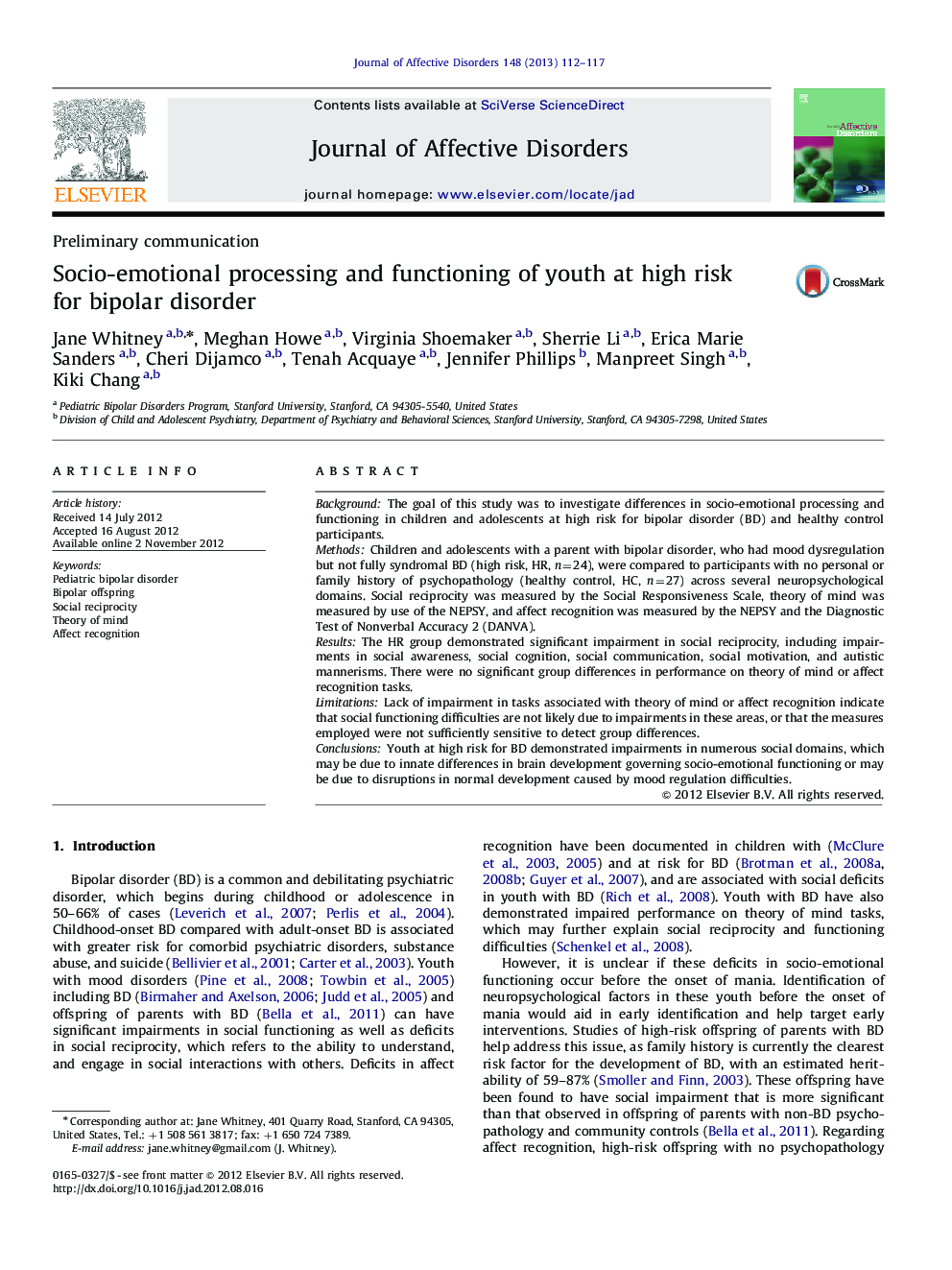| Article ID | Journal | Published Year | Pages | File Type |
|---|---|---|---|---|
| 6234540 | Journal of Affective Disorders | 2013 | 6 Pages |
BackgroundThe goal of this study was to investigate differences in socio-emotional processing and functioning in children and adolescents at high risk for bipolar disorder (BD) and healthy control participants.MethodsChildren and adolescents with a parent with bipolar disorder, who had mood dysregulation but not fully syndromal BD (high risk, HR, n=24), were compared to participants with no personal or family history of psychopathology (healthy control, HC, n=27) across several neuropsychological domains. Social reciprocity was measured by the Social Responsiveness Scale, theory of mind was measured by use of the NEPSY, and affect recognition was measured by the NEPSY and the Diagnostic Test of Nonverbal Accuracy 2 (DANVA).ResultsThe HR group demonstrated significant impairment in social reciprocity, including impairments in social awareness, social cognition, social communication, social motivation, and autistic mannerisms. There were no significant group differences in performance on theory of mind or affect recognition tasks.LimitationsLack of impairment in tasks associated with theory of mind or affect recognition indicate that social functioning difficulties are not likely due to impairments in these areas, or that the measures employed were not sufficiently sensitive to detect group differences.ConclusionsYouth at high risk for BD demonstrated impairments in numerous social domains, which may be due to innate differences in brain development governing socio-emotional functioning or may be due to disruptions in normal development caused by mood regulation difficulties.
